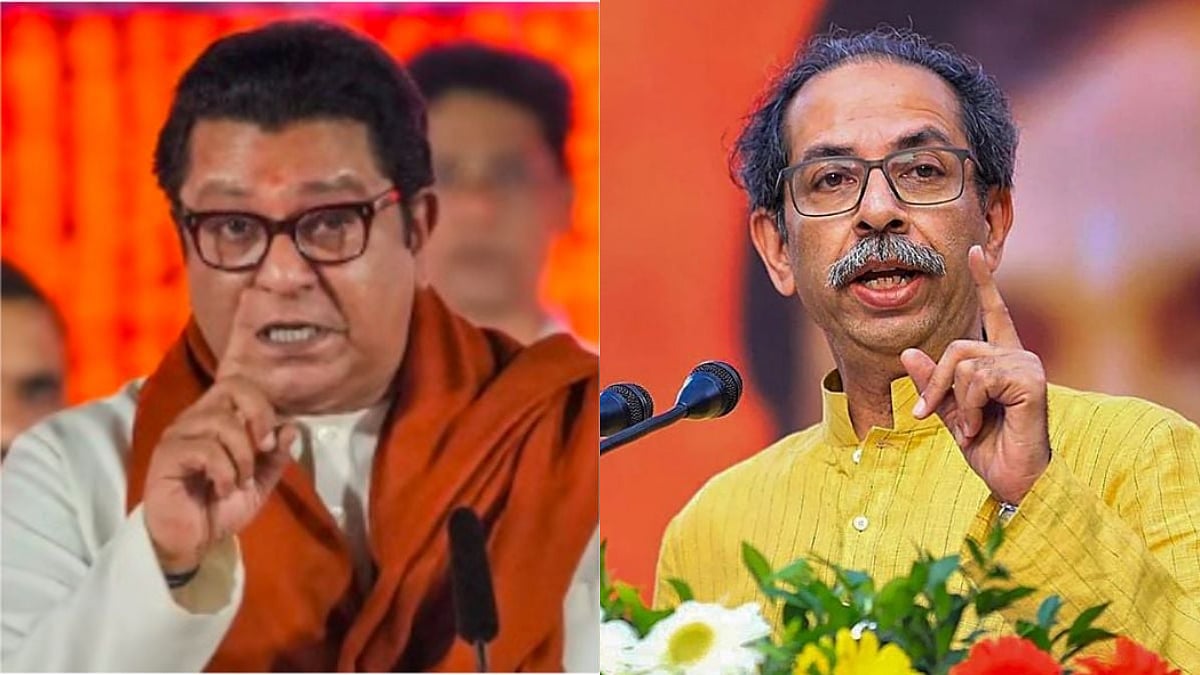The issue of the education of the Hindi language being introduced as a compulsory subject in schools in Maharashtra from first grade itself became controversial in the state last week. Maharashtra Navnirman Sena (MNS) party Chief Raj Thackeray took up the subject politically and announced that he would launch an agitation over the matter.
Subsequently, the issue gathered pace with many non-political organisations raising objections to Hindi being made mandatory. Chief Minister Devendra Fadnavis had to finally relent and announce that there was no compulsion anymore in primary schools.
Just as this controversy receded, the media reported that both Thackeray cousins, Uddhav and Raj, were likely to reconcile and join forces for the upcoming Mumbai, Thane, and Navi Mumbai civic polls to form a regional political force in the interest of Maratha pride.
This gives rise to the question: does Maharashtra, in modern times, really have a regional spirit and linguistic pride alive which can sustain a political party that can thrive on such a spirit?
The state of Maharashtra was formed on May 1, 1960, according to the linguistic bifurcation of states. Celebrations went on for months over a Marathi state being formed. But just about six years later, in June of 1966, an organisation to protect the rights of Marathi-speaking people, known popularly as “Marathi Manoos”, was formed by Balasaheb Thackeray.
The organisation was named Shiv Sena. The feeling that Marathi-speaking people were being sidelined in Mumbai and were not getting a fair deal in jobs or other opportunities crept in within six years of the formation of the state! This feeling has lasted for over six decades and got revived again when Raj Thackeray formed his Maharashtra Navnirman Sena (MNS) in January 2006.
However, considering the way Raj Thackeray’s party has performed in the past 19 years and the loss of share the Shiv Sena (UBT) has faced in the state assembly in the past elections, the question being asked is whether the “Marathi Manoos spirit” has lost its sheen. When Eknath Shinde split from the original Shiv Sena in 2022, claiming that he was the real Shiv Sena, his agenda was only Hindutva.
The original Marathi Manoos agenda of Balasaheb Thackeray was nowhere to be seen in his campaign for the Lok Sabha and the state assembly polls of 2024. Shinde managed to do reasonably well in both the polls. In the Lok Sabha he won seven seats, and in the state assembly he won 57. During the same period, Raj Thackeray, who had originally announced that his party was being formed to protect the interests of the Marathi Manoos, shifted his agenda from Marathi to Hindutva.
Now, with the government making Hindi education compulsory from first grade in schools, the regional spirit of the “Marathi Manoos” seems to have been invoked to some extent. The feelings of insecurity among Marathi-speaking population in the state and the sense that sons of the soil are being neglected are being capitalised on by Raj Thackeray’s party and even Uddhav Thackeray’s Shiv Sena to some extent.
However, the BJP, which has the largest number of seats (132) in the state assembly, Shinde’s Shiv Sena, which has 57 seats, and other parties have not spoken a word about the issue. Does this mean that party activists, who usually have their ears to the ground, feel that the issue of Marathi pride is not too important for voters in Maharashtra?
Recently, the country witnessed how the introduction of Hindi in schools created a political storm in Tamil Nadu, with Chief Minister Stalin taking a hard stance against its induction as a mandatory subject in schools as part of the new National Education Policy. Similar reactions may be seen in other southern states, but the subject did not resonate much with most political parties in Maharashtra.
The Marathi spirit coming up as an issue in the public sphere and media made Raj and Uddhav Thackeray speak about future political possibilities. The regional media in Maharashtra went overboard in reporting and discussing the possibility of both the cousins coming together. However, seasoned analysts feel that this is merely a storm in a teacup.
Looking at the way things have gone between the cousins in the past two decades and the extent to which they have gone against each other in politics, their coming together seems next to impossible. It is very clear that both Raj and Uddhav Thackeray’s parties are currently facing an existential crisis. The upcoming civic polls in 12/14 municipal corporations and over 20 district councils are going to be a “do or die scenario” for them.
Rohit Chandavarkar is a senior journalist who has worked for 31 years with various leading newspaper brands and television channels in Mumbai and Pune
